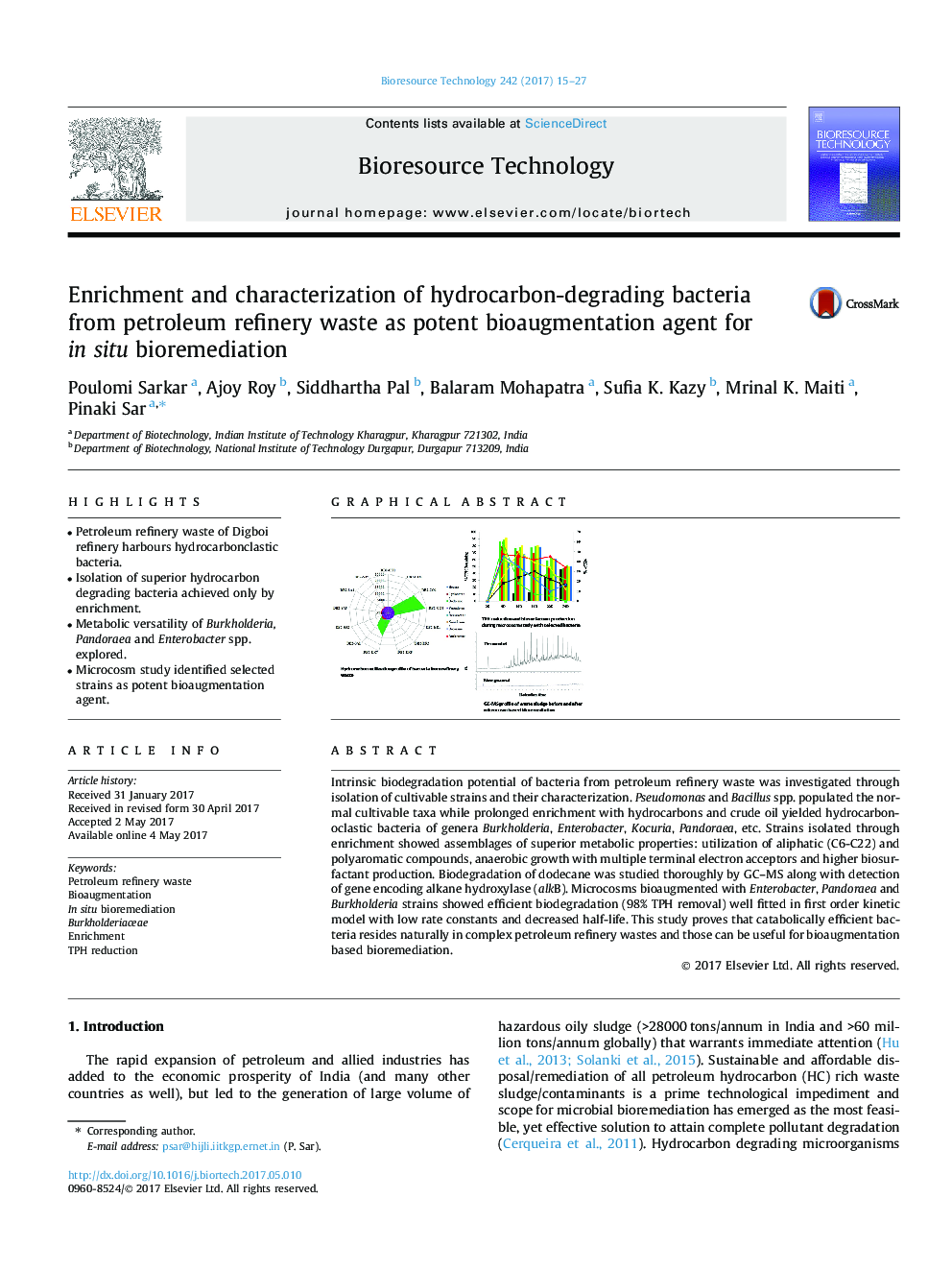| Article ID | Journal | Published Year | Pages | File Type |
|---|---|---|---|---|
| 4996467 | Bioresource Technology | 2017 | 13 Pages |
â¢Petroleum refinery waste of Digboi refinery harbours hydrocarbonclastic bacteria.â¢Isolation of superior hydrocarbon degrading bacteria achieved only by enrichment.â¢Metabolic versatility of Burkholderia, Pandoraea and Enterobacter spp. explored.â¢Microcosm study identified selected strains as potent bioaugmentation agent.
Intrinsic biodegradation potential of bacteria from petroleum refinery waste was investigated through isolation of cultivable strains and their characterization. Pseudomonas and Bacillus spp. populated the normal cultivable taxa while prolonged enrichment with hydrocarbons and crude oil yielded hydrocarbonoclastic bacteria of genera Burkholderia, Enterobacter, Kocuria, Pandoraea, etc. Strains isolated through enrichment showed assemblages of superior metabolic properties: utilization of aliphatic (C6-C22) and polyaromatic compounds, anaerobic growth with multiple terminal electron acceptors and higher biosurfactant production. Biodegradation of dodecane was studied thoroughly by GC-MS along with detection of gene encoding alkane hydroxylase (alkB). Microcosms bioaugmented with Enterobacter, Pandoraea and Burkholderia strains showed efficient biodegradation (98% TPH removal) well fitted in first order kinetic model with low rate constants and decreased half-life. This study proves that catabolically efficient bacteria resides naturally in complex petroleum refinery wastes and those can be useful for bioaugmentation based bioremediation.
Graphical abstractDownload high-res image (89KB)Download full-size image
